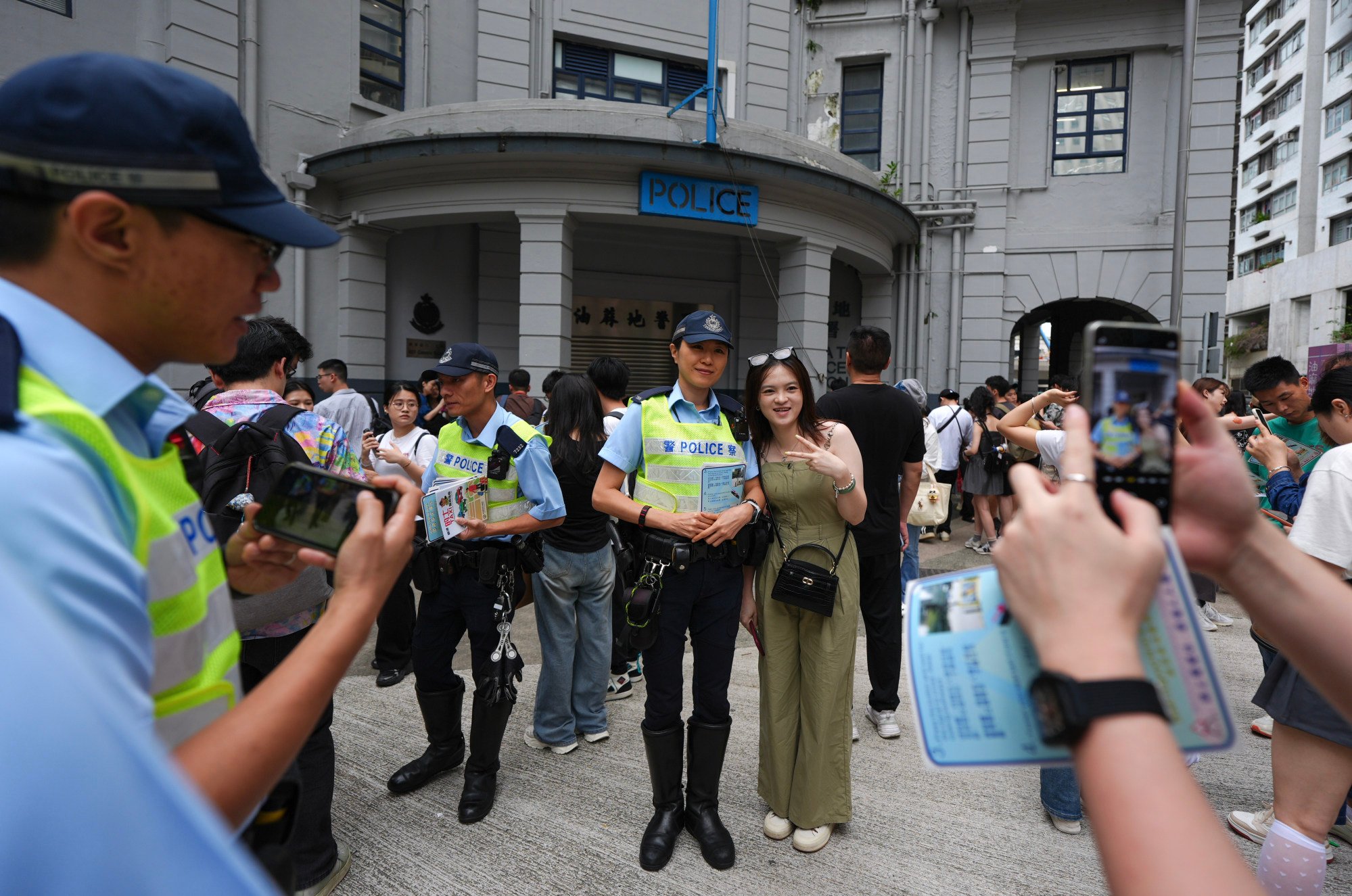
Hong Kong’s tourism industry still struggling to recover as Labour Day ‘golden week’ trips hit just two-thirds of pre-pandemic levels
- Financial Secretary Paul Chan says government will continue to work hard to attract more tourists to city, despite apparent trend towards commuter visitors
- Hong Kong recorded 893,764 inward trips over the five day golden week break, which ended on Sunday
He was speaking after the city recorded 893,764 inward trips over the five-day mainland break, which ended on Sunday.
The figure was 23.5 per cent higher than the same period last year, but only 66.8 per cent of the 2019 number, when 1.33 million trips were recorded.

Industry leaders said the numbers showed better-targeted policies were needed and that fresh ideas had to be included in a tourism blueprint designed to reboot the industry, which will be unveiled later this year.
“[They] can come and spend to contribute to our retail and dining industries,” Chan said.
“At the same time, it provides them with an opportunity to witness the actual situation in Hong Kong as there are occasional misleading reports in the media.
“We need to bolster their confidence.”
The figures also showed that 85 per cent of tourists were from the mainland.
Tourism minister Kevin Yeung Yun-hung earlier said he expected the mainland visitor footfall for the holiday this year would be in line with expectations of 800,000 people with a total spend of more than HK$2 billion (US$255.9 million).
Each overnight visitor in 2019 spent an average of HK$5,818 and day-trip tourists HK$2,004, Tourism Board figures showed.
The per capita spend by overnight visitors increased 18.6 per cent to HK$6,900 last year, but the amount spent by day-trip ones contracted by 35.1 per cent to HK$1,300.
But the board predicted spending by overnight visitors this year would decline to a level similar to that logged in 2019.
There were 2.01 million trips out of the city over golden week, with 55 per cent of them involving Hong Kong residents.
Change in holiday habits sees budget travel to Hong Kong increase
Mainland tourists were second for departures on 37 per cent, and the remaining 8 per cent was made up of visitors from elsewhere.
That meant a total net inflow of 33,063 trips over the period, 28.5 per cent lower than the 46,274 recorded for the same period in 2023.
Simon Lee Siu-po, an honorary fellow at the Asia-Pacific Institute of Business at the Chinese University of Hong Kong, said tourist spending was affected by people who had opted for cheaper hotel options in nearby Shenzhen and commuted to the city on day trips.
“The government has been working hard to attract tourists, but yet visitors in the Greater Bay Area are more into low-spending day trips while staying overnight in Shenzhen,” he said.
“In Shenzhen, when five-star hotels like the Grand Hyatt and Ritz-Carlton only charge about HK$1,100 to HK$1,400 a night, there is no incentive to stay overnight in Hong Kong, which costs a few thousand dollars.
“This applies to people outside the bay area too.”
The bay area is Beijing’s plan to link Hong Kong and Macau with nine mainland cities to create an economic powerhouse.
Lee noted that the Four Seasons Hotel in Shenzhen offered an annual membership for 2,888 yuan, which allowed people to claim a 50 per cent discount on room rates and food, along with cash coupons and complimentary meals.
He suggested local authorities should create incentives to attract visitors, such as 20 per cent off their hotel rates after they had spent a certain amount in the city.
“Hong Kong is just too expensive for them to find good reasons to pay for air tickets and expensive hotels to come and stay here,” Lee said.
“They may choose other destinations on the mainland or even have a short trip in Japan given the yen is cheap.”
Mainland visitor spending to exceed HK$2 billion in Hong Kong over break: minister
Sara Leung Fong-yuen, the chairwoman of the Hong Kong Tourism Industry Employees General Union, said authorities should put more emphasis on unique elements of city culture, such as stilt houses and typhoon shelters, rather than concentrating on elaborate firework displays and mega events.
“Hong Kong has a solid foundation and possesses unique cultures,” she said.
“I don’t understand why the government is not increasing investment in this aspect for Hong Kong to have its selling points, just like Disneyland provided us with a long-lasting and popular tourist attraction.
“Promoting our unique culture would also help attract more visitors to come and explore as long-term attractions.
“Mega events are not exclusive to Hong Kong. It is also costly and takes a long time to access its economic benefits in enticing visitors.”
Leung said the number of visitors had gradually gone up mainly through individual travellers, but the number of tour groups had not shown a significant increase.
She added the presence of non-city unlicensed tour operators further complicated the situation for registered travel agencies.
Authorities allocated HK$100 million to boost mega event promotions over the next three years in a bid to kick-start the sluggish tourism recovery.
Monthly HK$1 million firework shows, which started on May 1, will also be staged to dazzle tourists.

